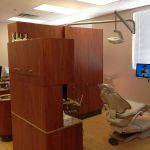Understanding the Importance of Dental Care After a Tooth Extraction
When a tooth extraction is necessary, whether due to damage, decay, or orthodontic needs, it’s essential to prioritize proper dental care after the procedure. Proper care not only ensures a smooth recovery but also helps prevent infections and complications that can arise. In this article, I’ll dive into the reasons why dental care after a tooth extraction is so important and share practical tips that can make a significant difference in your healing process.
1. The Immediate Aftercare: What Happens Right After Tooth Removal?
Immediately after your tooth extraction, the first few hours are crucial. You’ll likely be given specific instructions by your dentist, and following them carefully will minimize discomfort and prevent post-extraction complications. Immediately after the procedure, your dentist may place a gauze pad on the extraction site to help control bleeding. It’s important to keep pressure on the gauze for the recommended time and avoid disturbing the site.
During the first 24 hours, avoid activities like sucking, spitting, or drinking through a straw, as these can dislodge the blood clot and lead to a condition called dry socket. Dry socket is not only painful but can also delay the healing process. It’s important to rest and give your body the best chance to heal properly.
2. Oral Hygiene: Maintaining Cleanliness Without Disrupting the Healing Process
Keeping your mouth clean is essential, but it requires a delicate balance during the initial days following a tooth extraction. While brushing your teeth is important, you’ll need to avoid brushing near the extraction site until it’s fully healed. Instead, use a saltwater rinse to gently clean the area and reduce the risk of infection. Saltwater rinses can help soothe the site and keep bacteria at bay without disrupting the healing tissue.
As your recovery progresses, you can gradually return to your regular oral hygiene routine, but always be gentle around the extraction site. A soft-bristled toothbrush is recommended to avoid causing irritation or damage to the healing area.
3. Diet: What to Eat After a Tooth Extraction
Your diet plays a crucial role in the healing process after a tooth extraction. For the first few days, it’s best to stick to soft foods that don’t require much chewing. Think mashed potatoes, smoothies, soups, and yogurt. Cold foods can be soothing, but avoid very hot or spicy items that might irritate the extraction site.
It’s also essential to stay hydrated during the recovery process. Drink plenty of water, but avoid sugary drinks or alcohol, as they can slow healing. In addition, be cautious when eating to avoid accidentally biting down on the affected area, which could lead to pain or damage to the healing tissue.
4. Pain Management: How to Control Discomfort
After a tooth extraction, some level of discomfort is normal. Your dentist will likely prescribe pain medications to help you manage this. Over-the-counter options like ibuprofen or acetaminophen may also be recommended for mild pain. However, it’s important not to overuse painkillers, as this can mask other symptoms of potential complications.
If pain persists or worsens after a few days, or if you experience signs of infection such as swelling, fever, or pus, contact your dentist immediately. While most discomfort should subside after a few days, prolonged or severe pain can indicate a problem that needs professional attention.
5. The Role of Follow-Up Appointments
Follow-up appointments are a key part of your recovery process. During these visits, your dentist will check the healing site, remove any stitches if necessary, and ensure there are no complications. Attending these appointments is crucial for a successful recovery, as your dentist can catch any issues early and offer guidance on how to maintain proper care as the site heals.
6. Avoiding Complications: What Can Go Wrong?
While most tooth extractions heal without issue, complications can occur. Infections, dry socket, and delayed healing are among the most common issues. To avoid these, it’s important to follow your dentist’s instructions closely, maintain good oral hygiene, and give your body the time it needs to heal properly. Additionally, if you notice any unusual symptoms like excessive bleeding, extreme pain, or swelling, don’t hesitate to contact your dentist.
7. Taking Care of Your Oral Health Long-Term
After your tooth extraction has healed, you’ll want to maintain good dental health to prevent future issues. Regular dental checkups, proper brushing and flossing, and avoiding habits like smoking can keep your mouth healthy and help prevent future extractions or other dental problems.
Incorporating a healthy lifestyle, including a balanced diet and avoiding excessive sugary foods, can contribute to overall oral health. Your dentist can offer additional advice tailored to your needs during your follow-up appointments, ensuring you stay on track for long-term oral wellness.
Whether it’s your first extraction or you’re recovering from multiple procedures, understanding the importance of dental care after a tooth extraction is crucial. By following the right aftercare practices, you’ll ensure a smoother recovery and set yourself up for healthier teeth and gums in the future.







 Dr. Michael P. Rutz, DMD5.0 (22 review)
Dr. Michael P. Rutz, DMD5.0 (22 review) River Pointe Dental of Fox River Grove4.0 (4 review)
River Pointe Dental of Fox River Grove4.0 (4 review) Mirage Dental Care - Dr. Empaljit Singh Gill5.0 (96 review)
Mirage Dental Care - Dr. Empaljit Singh Gill5.0 (96 review) MADE Dental Implant Center5.0 (29 review)
MADE Dental Implant Center5.0 (29 review) The Orthodontists at Council Bluffs0.0 (0 review)
The Orthodontists at Council Bluffs0.0 (0 review) Premier Dental, Dr. Craig Aronson4.0 (516 review)
Premier Dental, Dr. Craig Aronson4.0 (516 review) The Importance of Oral Health Education During Pregnancy for a Healthy Pregnancy
The Importance of Oral Health Education During Pregnancy for a Healthy Pregnancy Best Tips for Brushing Your Teeth Properly for Healthy Gums: Essential Techniques for Oral Health
Best Tips for Brushing Your Teeth Properly for Healthy Gums: Essential Techniques for Oral Health Why Skipping Dental Checkups Can Lead to Bigger Oral Health Problems
Why Skipping Dental Checkups Can Lead to Bigger Oral Health Problems Advantages of Porcelain Dental Restorations
Advantages of Porcelain Dental Restorations How Can Diabetes Cause Tooth and Gum Problems? Preventing and Managing Oral Health Issues
How Can Diabetes Cause Tooth and Gum Problems? Preventing and Managing Oral Health Issues Healthy Habits for Promoting Good Oral Health and Hygiene: Tips for a Healthy Smile
Healthy Habits for Promoting Good Oral Health and Hygiene: Tips for a Healthy Smile